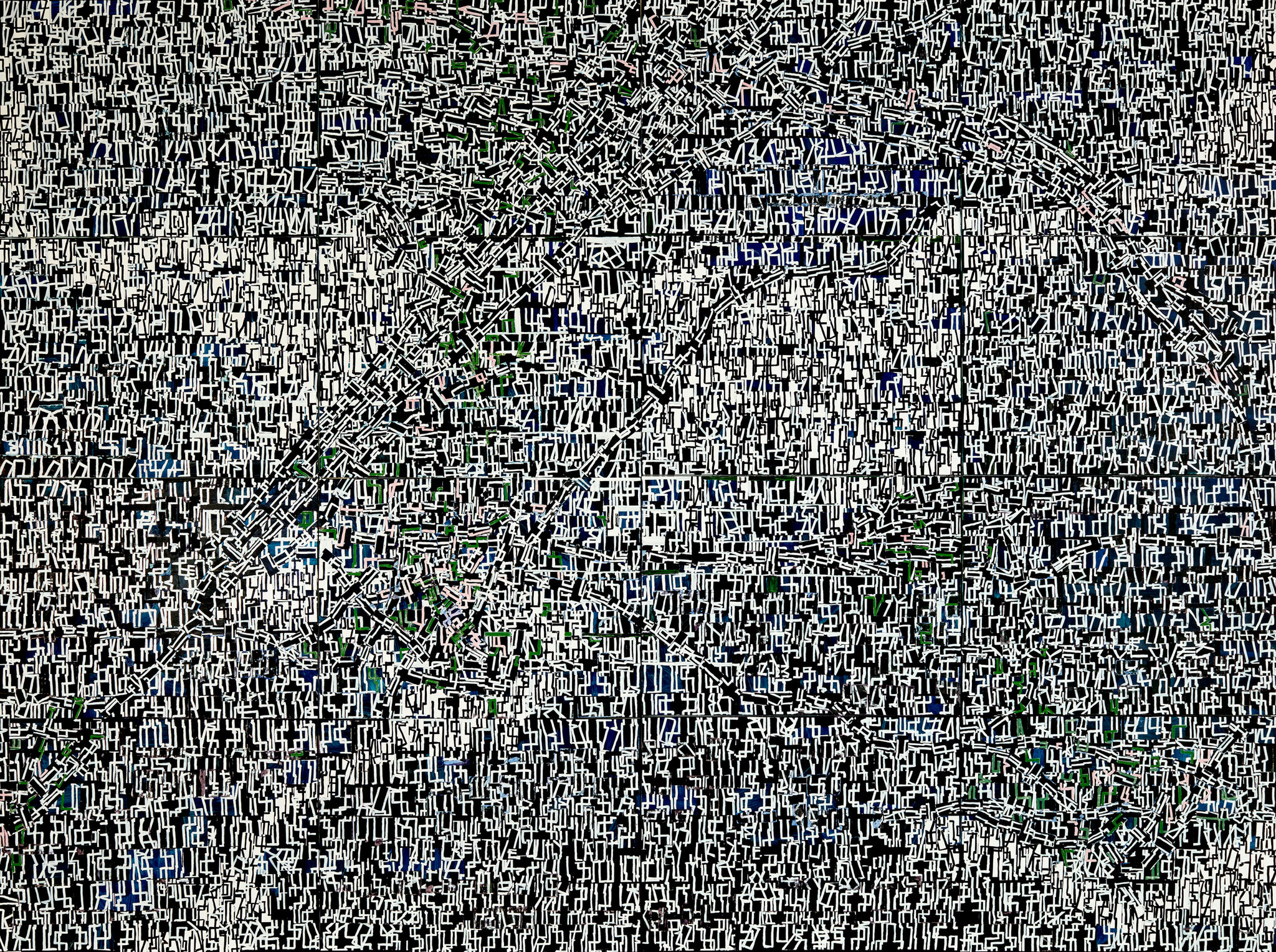Whitney Biennial 2022: Quiet as It’s Kept | Art & Artists
Apr 6–Oct 16, 2022
Whitney Biennial 2022: Quiet as It’s Kept | Art & Artists
Rick Lowe
36
Floor 5
Born 1961 in rural Alabama
Lives in Houston, TX
Rick Lowe, who uses playing dominoes as the basis for his paintings, has talked about the symbolic qualities of the game as scenarios for community engagement. Lowe began by photographing and later tracing the patterns made by domino games, using them as a model for a form of abstraction grounded in lived experience. He finds playing dominos to be “an incredibly spiritual and educational experience. There’s a code of ethics around the way the game is played; rigorous competition, humility, and respect.”
Lowe’s early career was focused on painting until his work shifted into social practice. This work’s title frames the question that helped instigate this pivot. A teenager had asked him: if artists are creative, why can’t they create solutions? With this question in mind, he co-founded Project Row Houses in 1993, transforming condemned houses in Houston’s Third Ward into spaces for artists’ projects, educational programs, and social services. Returning to painting, Lowe has explained, provides “nourishment” and a space for reflection, complementing his activism.
Project Row Houses: If Artists Are Creative Why Can’t They Create Solutions, 2021
-
0:00
Rick Lowe, Project Row Houses: If Artists Are Creative Why Can’t They Create Solutions
0:00
Narrator: Artist Rick Lowe trained as a landscape painter.
Rick Lowe: But very quickly I started to rebel against formal aspects of painting the way that it was taught to me, and I was interested much more in the political context of things that I was dealing with. And I wasn’t comfortable with how painting functioned in the art world, the art world as I saw it.
Narrator: In the 1990s, Lowe was one of the founders of Project Row Houses in Houston, a collective that transformed twenty-two homes in the city’s Third Ward into a community space for art and empowerment. This public, collaborative project influenced his painting. Lowe says that, in recent years, his process has become more intellectual, less physical, out of necessity. He started playing dominoes, and, eventually, making new work inspired by the game.
Rick Lowe: I really found myself at the domino table a lot more, you know, and just kind of learning and talking and sharing with people, playing dominoes and it's an incredibly spiritual and educational experience when you’re doing that on a regular basis with people you get to know. One of the things that I’m thinking about though is actually these patterns that would happen as the game plays out. Especially when people play with different colored dominoes. The shapes were really interesting, you know, and after people would play a hand and I was like, say, hold on, hold on, wait, hold it. And I would take a photograph of it, you know, with my camera, these bird’s-eye-view photographs. Then I started kind of getting into it and start layering them. And then it just starts to speak to me as something that’s separate from the game.
Narrator: After so many years as the public face of Project Row Houses, Lowe says the domino drawings gave him a new, more introspective opportunity.
Rick Lowe: I could kind of pull myself back and buy time for myself. I mean, I love that stuff where every decision should be a collaborative decision with many voices in that kind of stuff. I love that stuff. You know, in the studio making something, it’s my choice. It’s my decision. I get to make these things, you know? And that’s something that I kind of left behind, which is kind of a joy to reconnect with that. There’s a part of me that really loves this collaborative and social part, but there’s another part of me that has a deep appreciation for the private and personal, which I just kind of let go for you know, nearly thirty years.

